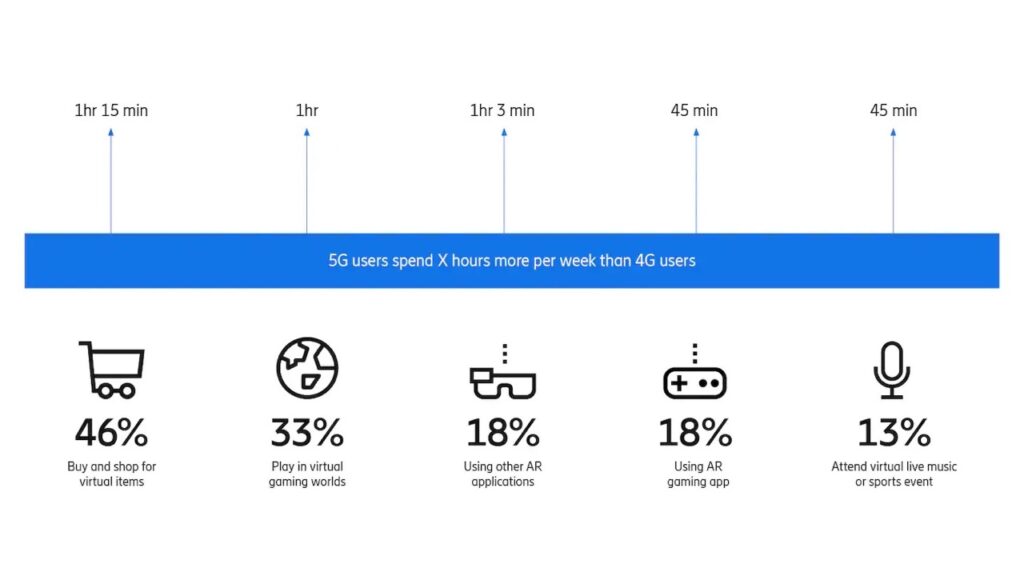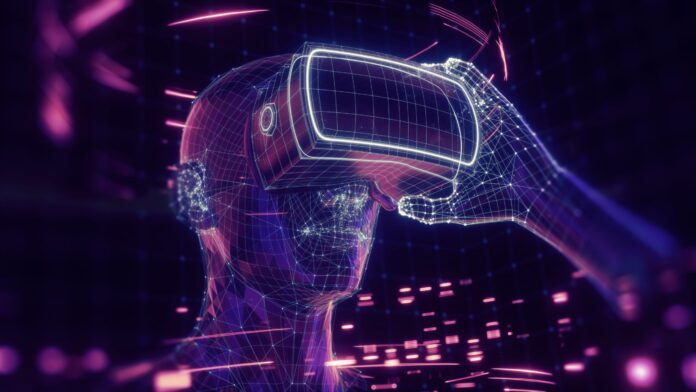New research from Ericsson claims 5G is pushing metaverse interaction for early adopters
A new report from Ericsson analyzes the impact that 5G has had on early adopters since its launch, and looks at the perspective of non-5G subscribers interested in adopting the technology. Among the claims in the report, Ericsson said migration to 5G is enabling early adopters to put metaverse technology to the test.
5G: The Next Wave claims that about 30% of all smartphone users plan to upgrade to a 5G subscription in 2023, or about 510 million people. The new study extrapolates that figure by examining the activities of 49,000 consumers in 37 countries. Ericsson says the poll is the largest consumer survey that it’s ever conducted, on any topic.
Ericsson said 5G enables early “metaverse-related activities,” making them more accessible to subscribers. Those activities include gaming, socializing and shopping in virtual worlds. Ericsson casts a pretty wide net when it comes to activities it says are metaverse-related, however.
“These virtual worlds exist in online and mobile games like Roblox, Fortnite or AR games such as those from Niantic (the developer of Pokémon Go), social virtual reality platforms, or platforms that allow users to create experiences, socialize, sell/buy, or entertain themselves in 3D environments like Zepeto or SK Telecom’s Ifland. Technologies such as VR, AR, AI, 5G, Blockchain, NFTs, and many others all sit within the metaverse world and represent a convergence and a scaling of these different products, services and visions into a single or multiple interoperable online worlds,” said Ericsson.

5G has already doubled the amount of time subscribers are using Augmented Reality (AR) apps, from one to two hours per week. 5G users on average are already spending one hour more per-week in metaverse-related services than 4G users, according to Ericsson’s research. Ericsson claimed that users anticipate consuming two hours of more video content on 5G-equipped mobile devices, 1.5 hours of which they expect to consume using AR/VR glasses by 2025. Half of 5G users who already use Extended Reality (XR)-related services weekly believe that that AR apps will move from smartphones to XR headsets within the next two years, said Ericsson.
Ericsson said six in 10 of those polled believe 5G is an essential enabler for the metaverse, with 41% of 4G users indicating plans to give AR a try once they’ve upgraded to 5G. Globally, 6 in 10 smartphone users think 5G is essential to make the metaverse happen, according to the report.
Ericsson’s news will, if anything, confirm the biases of many in the telecom industry already, as well as those who observe it. Gartner, for example, predicts that within five years, 25% of the global population will rely on at least an hour per week of metaverse activities for work, shopping, social interaction, education, or entertainment. Verizon and Meta are exploring the co-development of edge computing and other technology to enable the metaverse to happen, while other telecom companies are forging ahead with their implementations; Ericsson pointed to SK Telecom, based in South Korea, and its Ifland project. Ifland, which SK Telecom has largely targeted at Millennial and Gen Z-aged users, lets users create their own virtual environments, populated with hundreds of different avatars with customizable appearances. It’s off to a modest start: SKT revealed during its Q2 2022 financial results call with analysts that the service had garnered 1.63 million monthly active users (MAU) and 8.7 million cumulative downloads after about a year of active service. But SKT has bolder plans for Ifland than just as a virtual playground for its customers. SKT is licensing the tech for other telcos to use too.
Ultimately, Ericsson anticipates that video consumption will be a significant driver of metaverse technology as consumers are encouraged to move their viewing from smartphones, the dominant medium today, to AR or MR-equipped glasses instead.
“5G users with XR experience will be the first to take up future emerging devices because they are much more positive about the future of mixed reality glasses and the new devices that are going to be available. Half of 5G users who are already using XR-related services weekly think AR apps will move from smartphones to XR headsets within two years, whereas only one-third of 4G users think this,” said Ericsson.
“Growing access to 5G will support the ongoing development of the metaverse by providing the speed and power that make it possible for digital worlds to function at scale,” said Ericsson.

